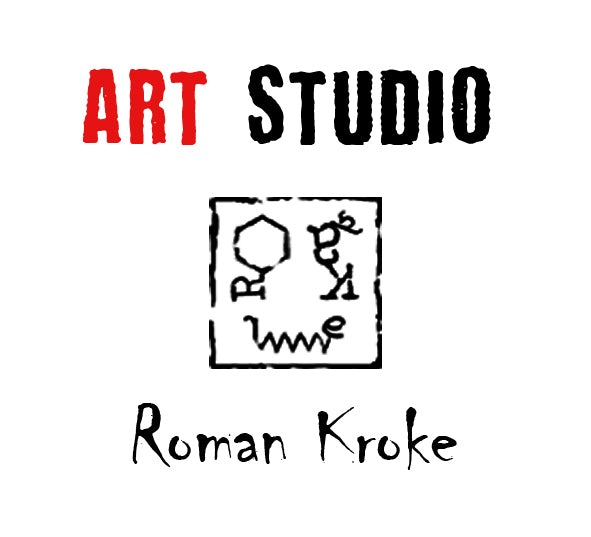About Roman
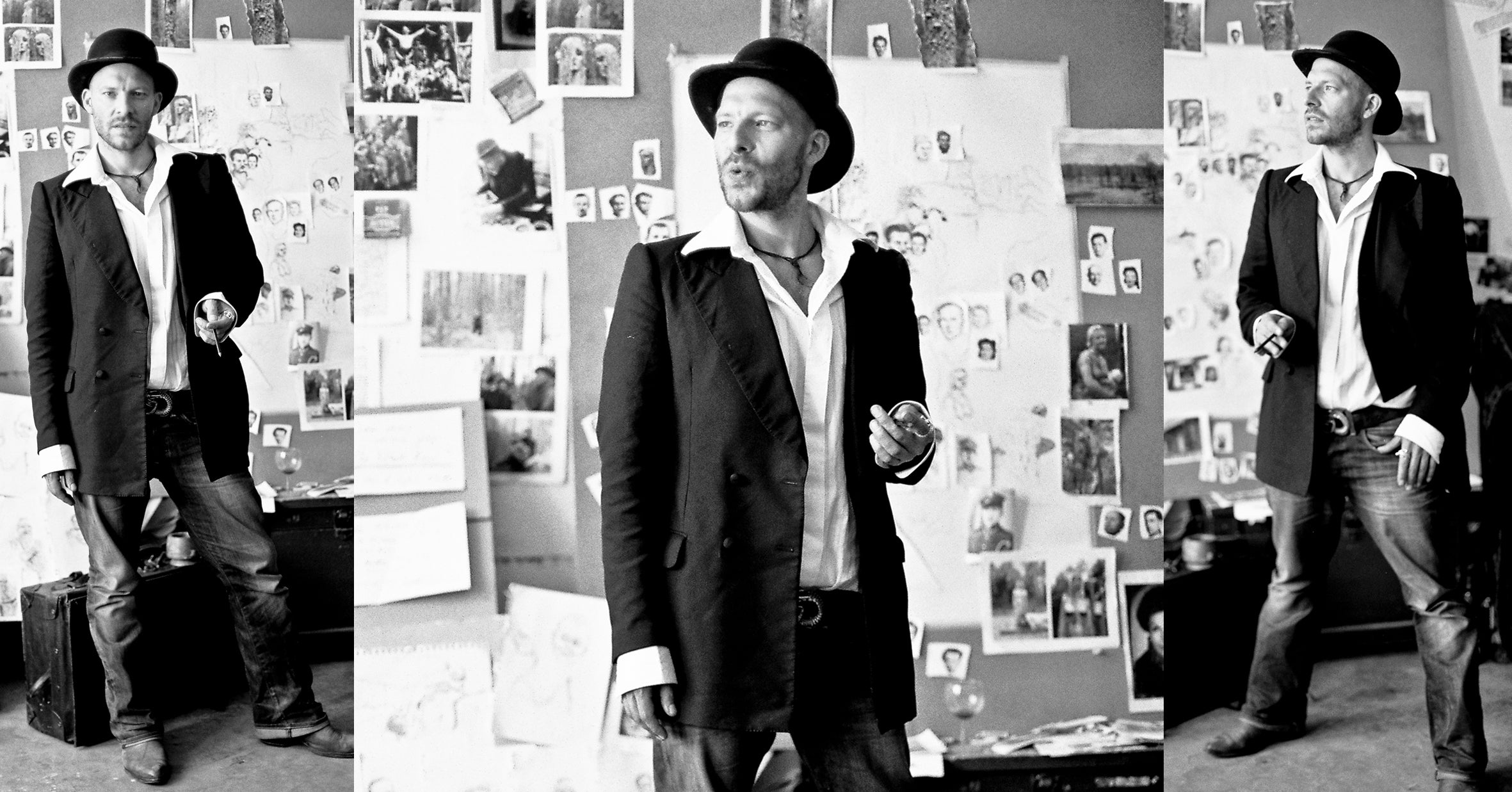
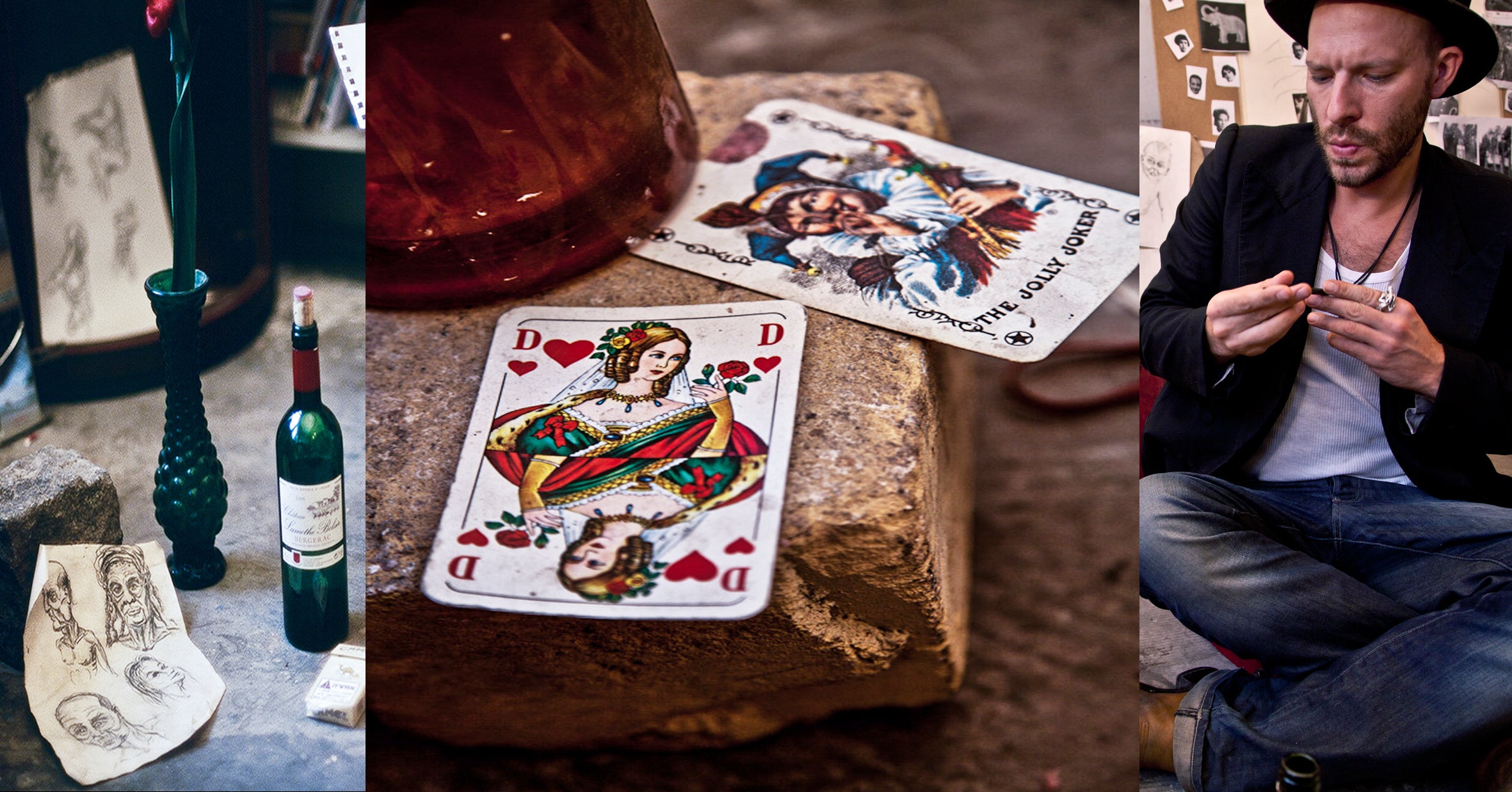
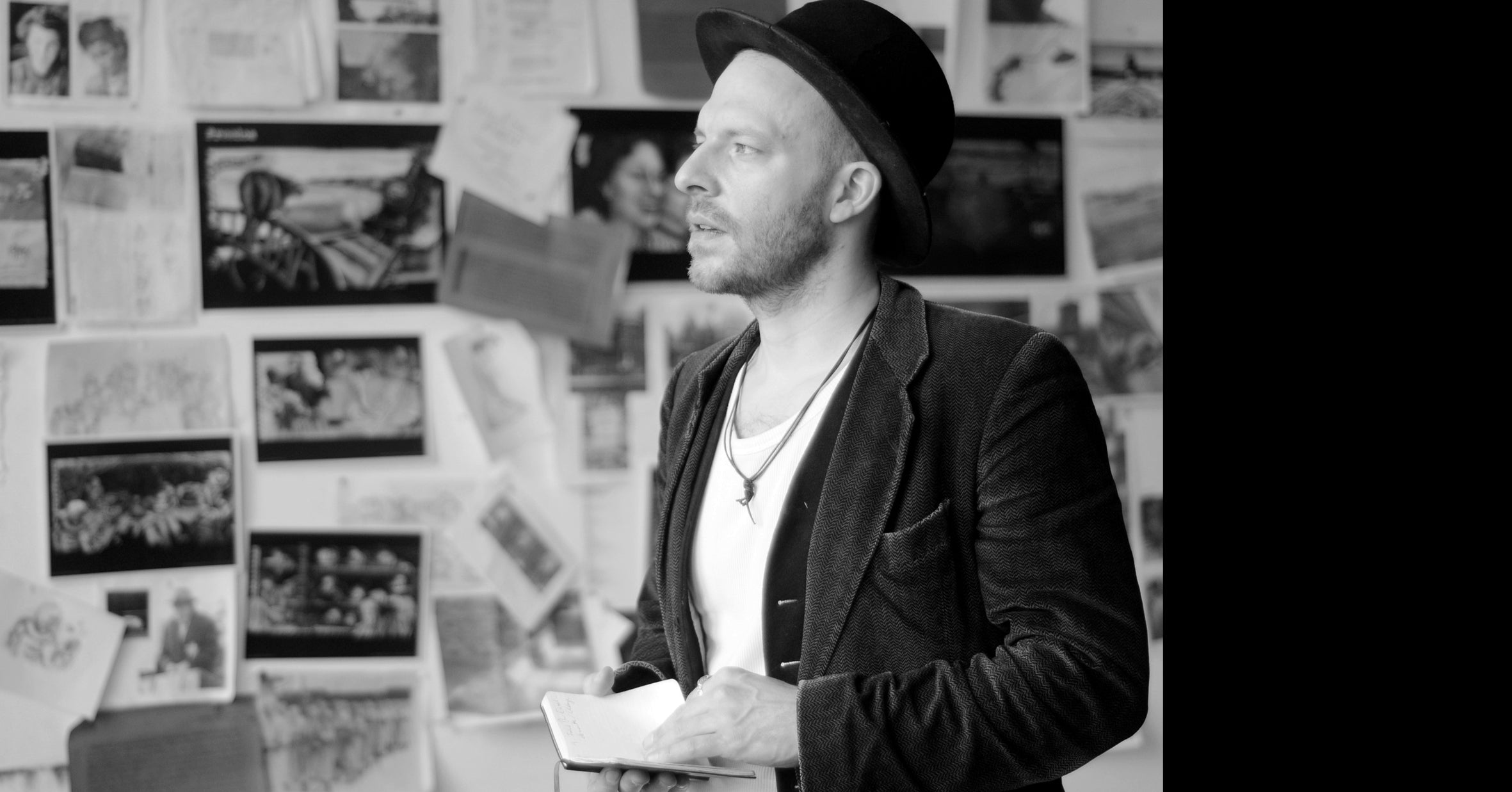
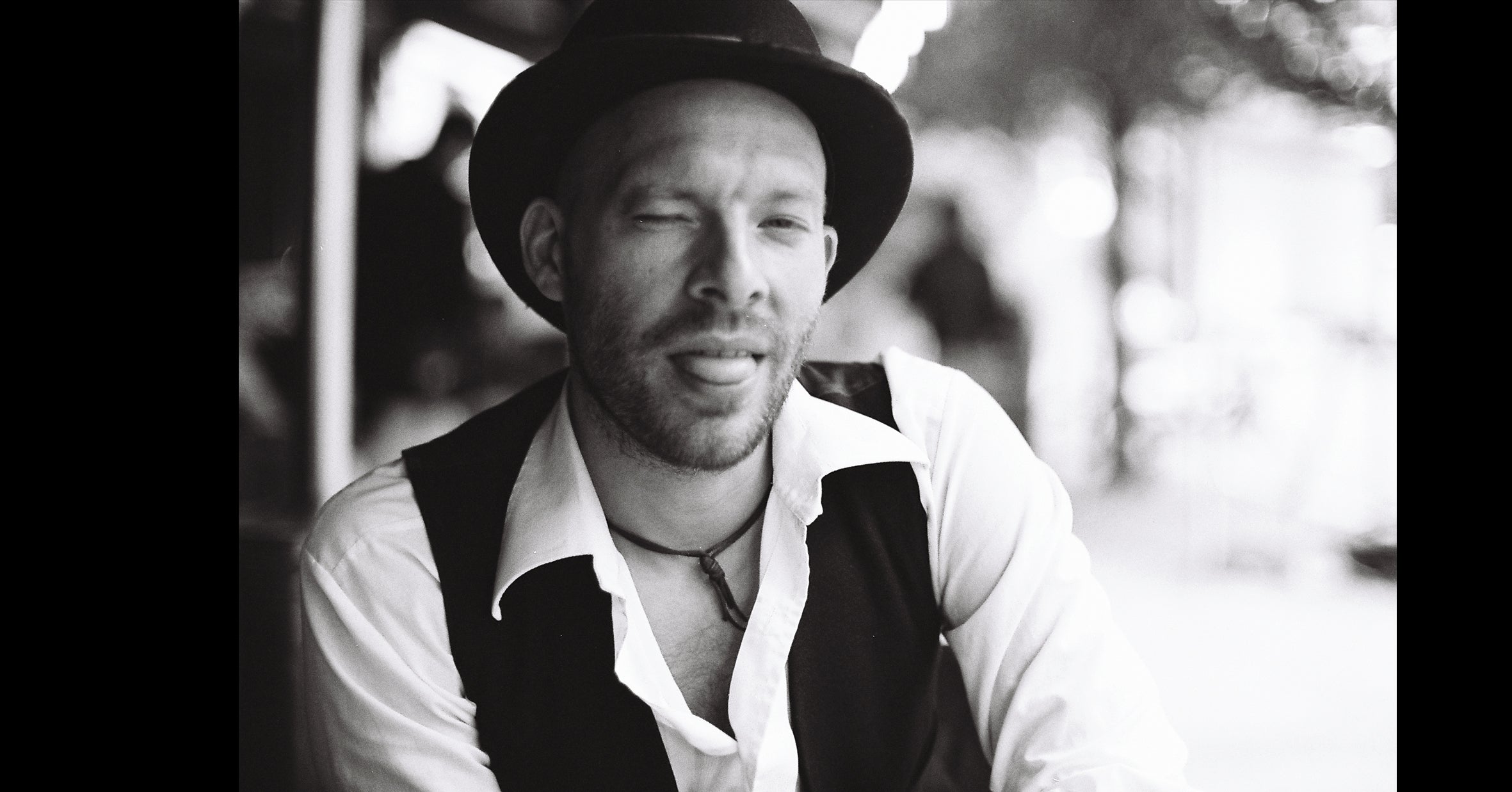
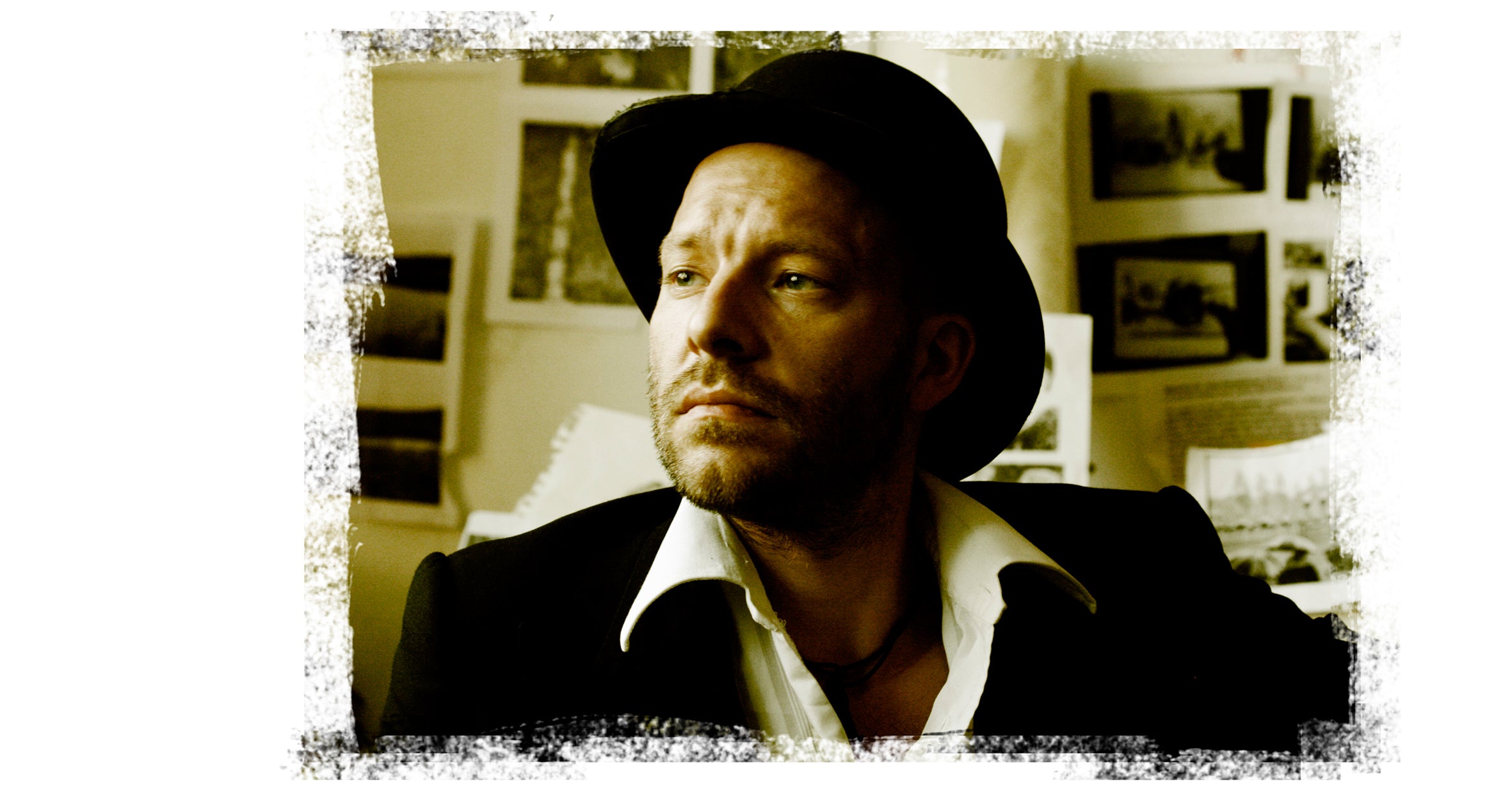
Roman Kroke – Interdisciplinary Artist
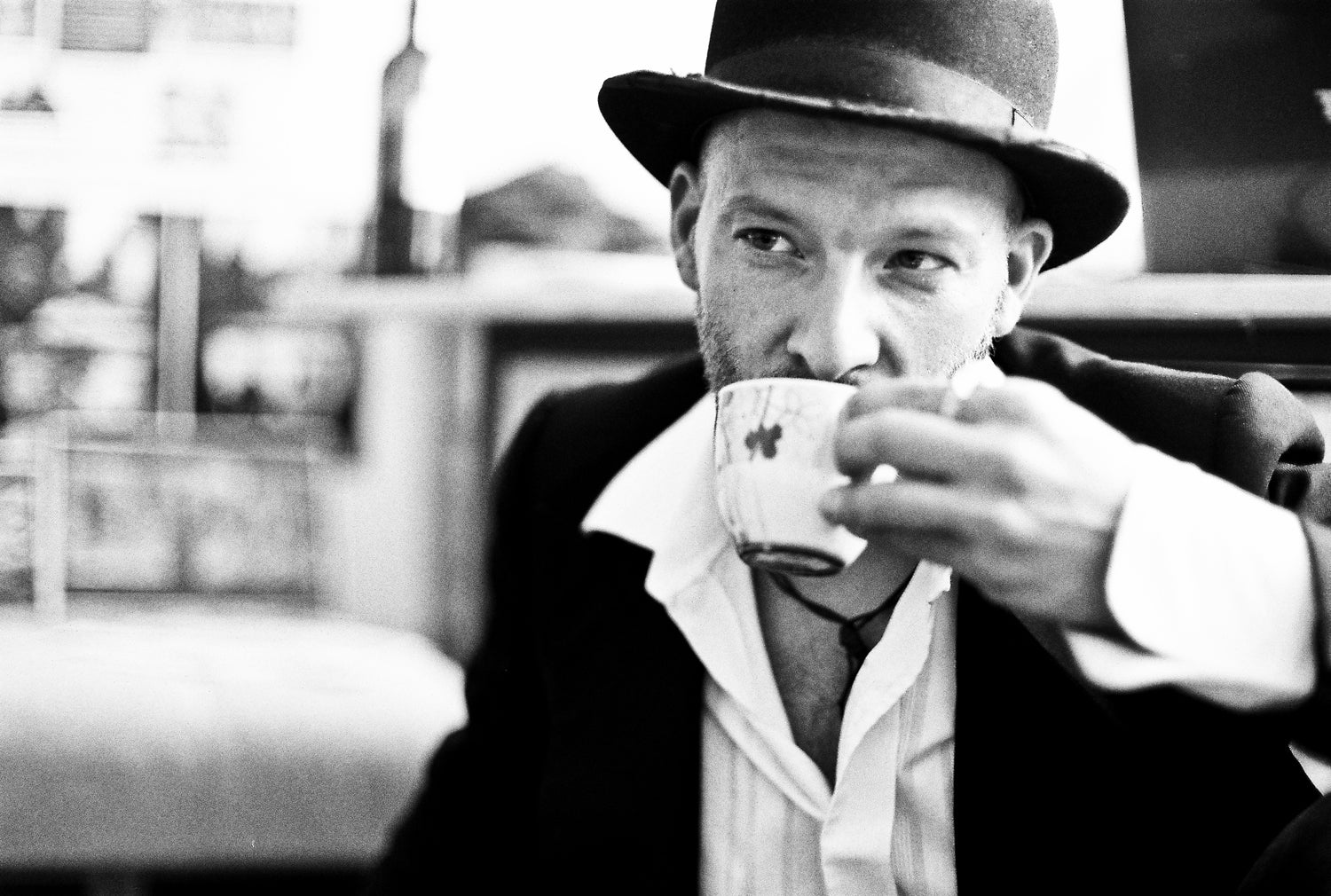
The
Waterweaver
German artist based in Berlin (Germany) and Lyon (France). Roman was born on the North Sea Coast, between sheep and lighthouses, exposed to the alternate rising and falling of the sea – the tides – a metaphorical symbol of renewal.
Lecturer at the Berlin University of the Arts (2015-18), Member of the scientific council of the memorial La Maison d'Izieu (FR) and the working group Cultural Education & Remembrance, coordinated by the Memorial Sachsenhausen (DE).
Former lawyer. During his law studies in Freiburg (DE), Geneva (CH) and Berlin (DE): scholarship holder of the German Academic Exchange Service (DAAD) and the Friedrich Ebert Foundation; as part of his work for the UN Sub-Commission on the Promotion and Protection of Human Rights: publication in the field of international human rights.
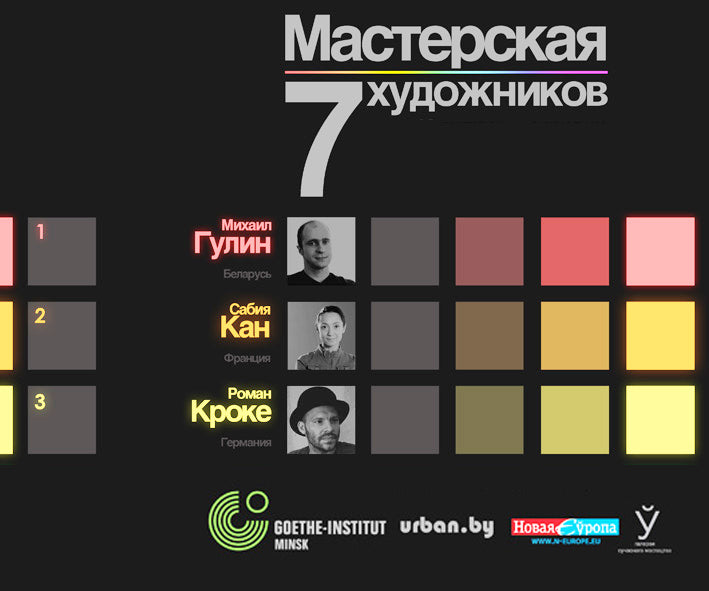
Roman's
Art Residencies
Roman was invited for the Artist-in-Residence program Studio of the 7 Artists in Minsk (Belarus), sponsored by the Goethe Institute of Belarus: TV report (with interview of Roman Kroke).
For one year, Roman had his atelier under the roof of the Nürtingen School Berlin (DE) – as part of a one-year Artist-in-Residence program coordinated by the Zurich University of the Arts/Institute for Art Education (CH). During this time, he also led a seminar for his students of the Berlin University of the Arts, leading to a collaborative workshop between the university students and the kids of the primary school: Report.
Art-Residence in LA-NON-MAISON (Aix-en-Provence/France) : Report
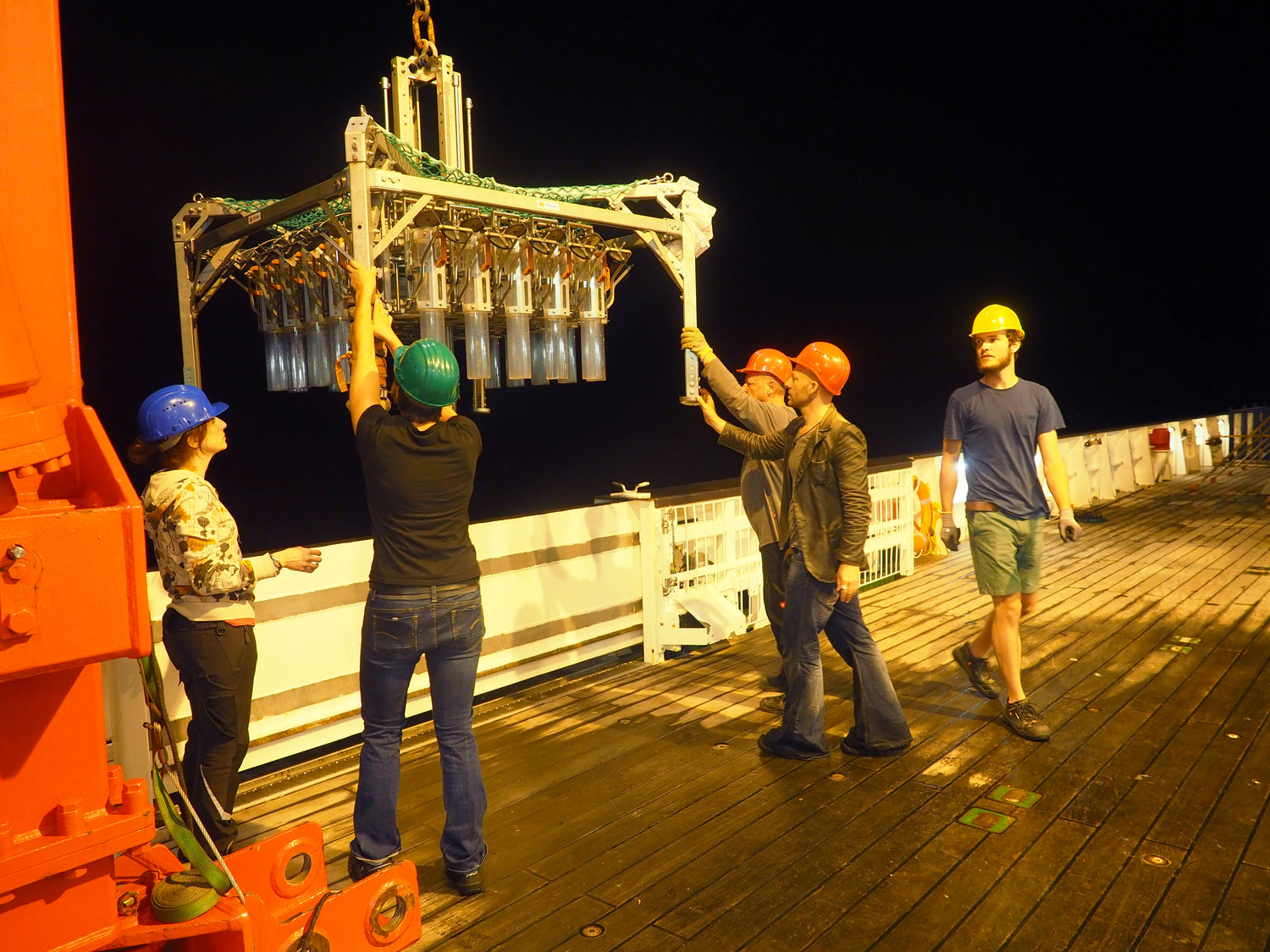
Roman's
Art Genre
Experimental Storytelling | Process Art
For Roman, the end product of his art is not the only focus. The most relevant aspect is the process of its making: the gathering, sorting, collating, associating, patterning and, moreover, the initiation of actions and proceedings. The process of creating the work and its story (“anti-form”) is an art piece itself.
Consequently, Roman adapts the form/”anti-form” of his artwork to the story he wants to tell. Apart from drawings, multi-media installations, readymades and poetry this may also include participative performances like Lift to the Ocean Bed, which he realized during his expedition across the Pacific Ocean (photo): With the help of scientists and the ship’s crew, he attached his canvas to the “legs” of the Multicorer, a scientific sampling instrument. The canvas thus travelled over 5000 meter deep to the ground of the Ocean. During this “lift”, the canvas impregnated with all the segments of the water column and, arriving at the sea bed, “postmarked” the sediments into its linen fabric.
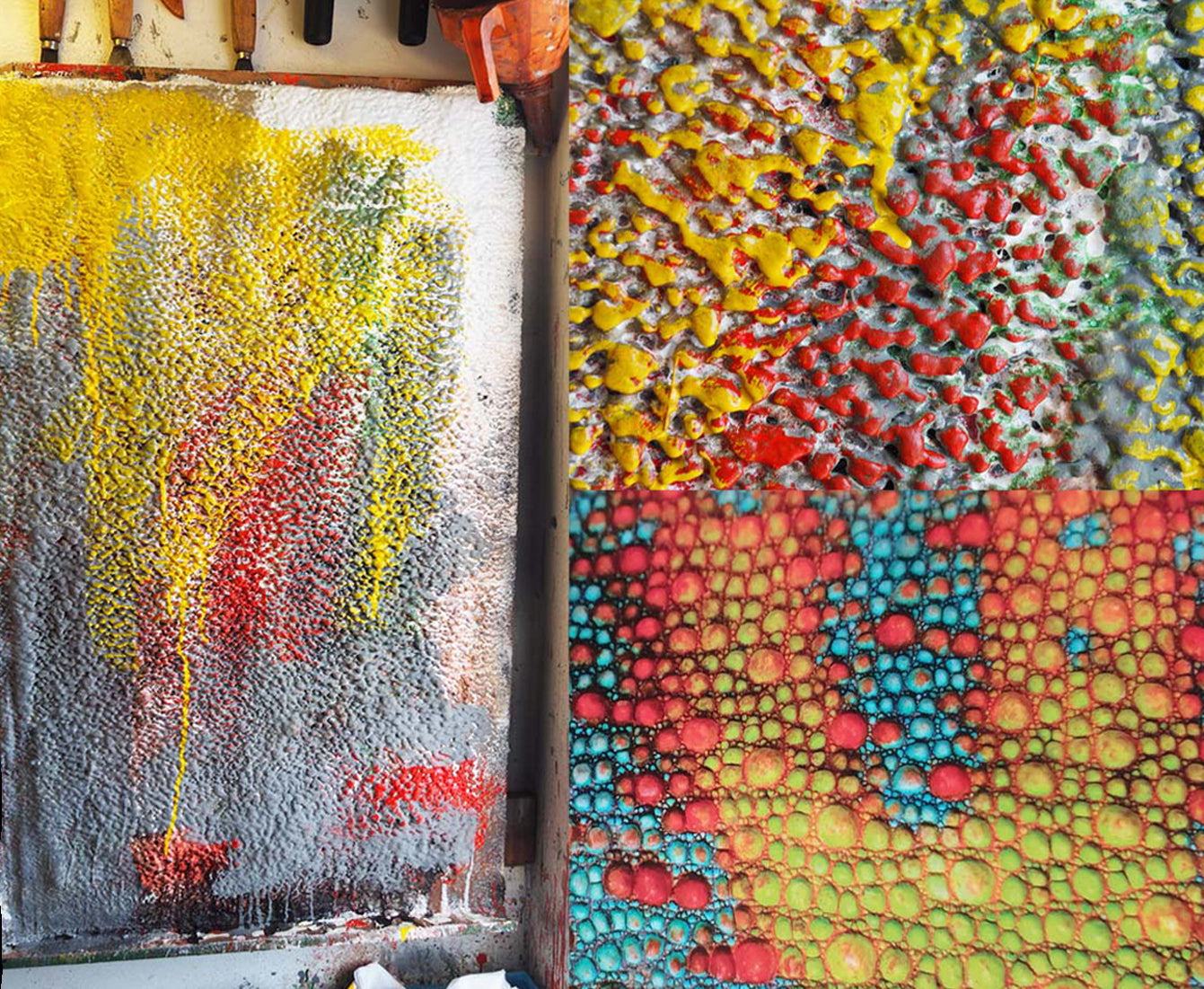
The
Interdisciplinary Approach
In his work, Roman combines the arts with science, history, literature, philosophy and pedagogy. It is based on a circular – not a linear – idea of time: an organic relationship between past, present and future.
He also develops, directs and coordinates (international) projects: exhibitions, seminars, workshops (video)conferences, teacher trainings, publications – in partnership with universities, research institutes, foundations, schools, memorials, prisons, museums and TV production companies (arte.tv).
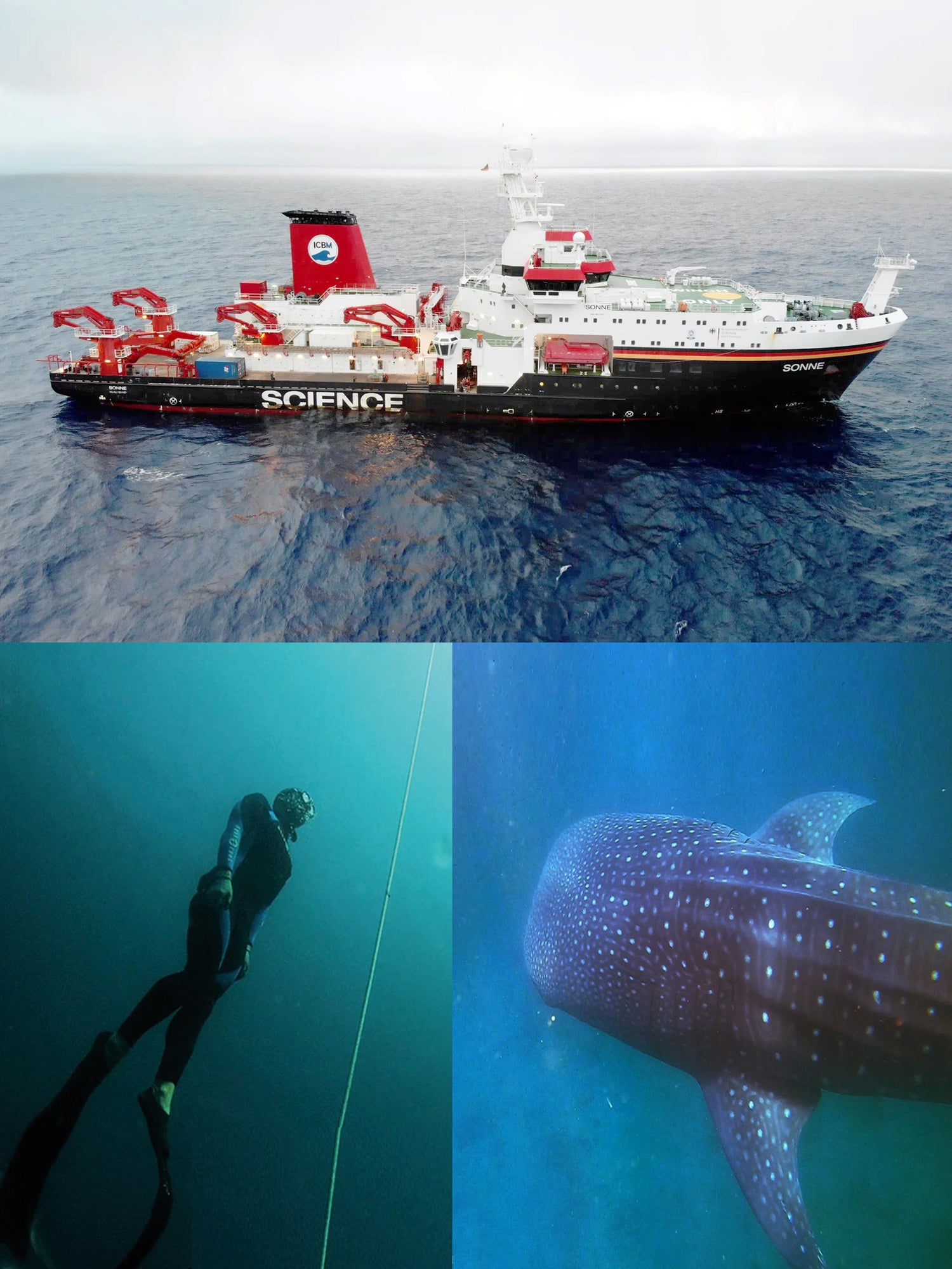
Art meets
SCIENCE
TOPICS: Ocean conservation, plastic pollution, sustainable development, climate change, biodiversity.
PROJECT PARTNERS (selection) – Germany: Helmholtz Centre for Environmental Research, Alfred Wegener Institute – Helmholtz Centre for Polar and Marine Research, Fraunhofer Institute for Ceramic Technologies and Systems, GEOMAR Helmholtz Centre for Ocean Research // France: University of Bordeaux (Institute of Ecotoxicology), Ifremer, ÉcoBIM (international network of reserachers, economic as well as cultural players in the area of ecotoxicology in aquatic environments with a transatlantic axis) // Italy: OCRA Officina Creativa dell'Abitare // Spain: Espronceda Center for Art & Culture // Serbia: Museum of Contemporary Art of Vojvodina // SAR of China: Li Po Chun United World College Hong Kong // Philippines: LAMAVE (Large Marine Vertebrates Research Institute Philippines).
DOCUMENTATION of selected “ART meets SCIENCE” projects under the menu Artworks.
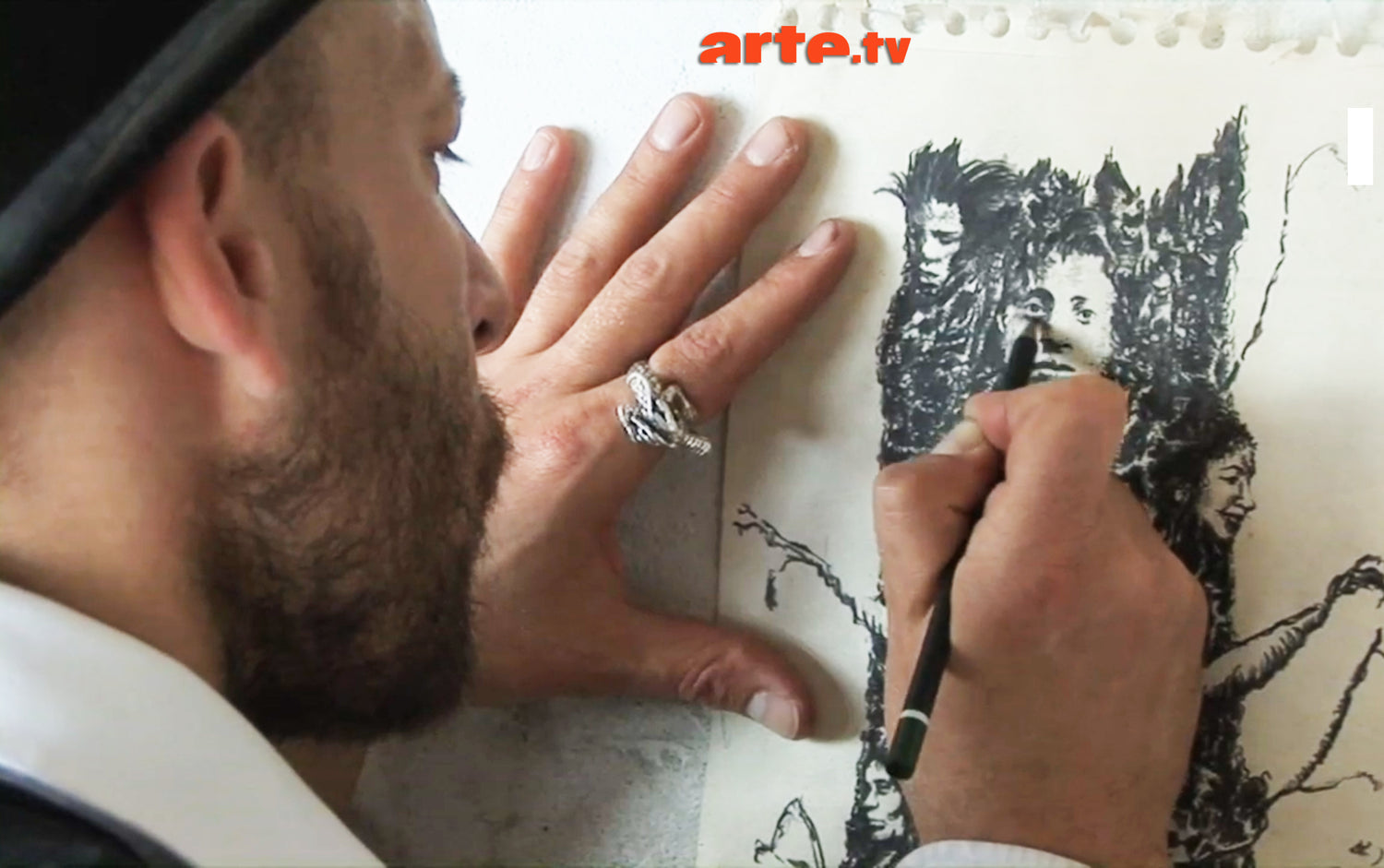
ART MEETS
HISTORY
TOPICS: Exil & Migration, Berlin Wall & Cold War, Shoah, Tutsi genocide in Rwanda, Resistance Movements, Witch Hunts.
PROJECT PARTNERS (selection) – Germany: Berlin Wall Memorial, Checkpoint Charlie Foundation, Foundation Remembrance, Responsibility and Future (EVZ), Memorial House of the Wannsee Conference, CIEE (Council on International Educational Exchange), German Resistance Memorial Center, Berlin State School for Ballet and Artistry, Memorial Denkort Bunker Valentin // France: National Museum on the History of Immigration, Musée de Gadagne, Foundation for the Memory of the Shoah, Memorial Maison d’Izieu // Italy: ISGREC (Historical Institute on Resistance) // Spain: EUROM (European Observatory on Memories), MUME – Museu Memorial de l’Exili // Belgium: Ghent Universitry (Etty Hillesum Reserach Centre), Mediel (TV-production company) // Bosnia-Herzegovina: United World College (UWC) Mostar // United States of America: Yeshiva University HSB, The School Without Walls of Washington D.C. // SAR of China: Hong Kong Holocaust and Tolerance Center // Belarus: Museum of Jewish Resistance, Goethe Institute Belarus // Czech Republic: Terezín Memorial.
DOCUMENTATION of selected “ART meets HISTORY” projects under the menu Artworks.
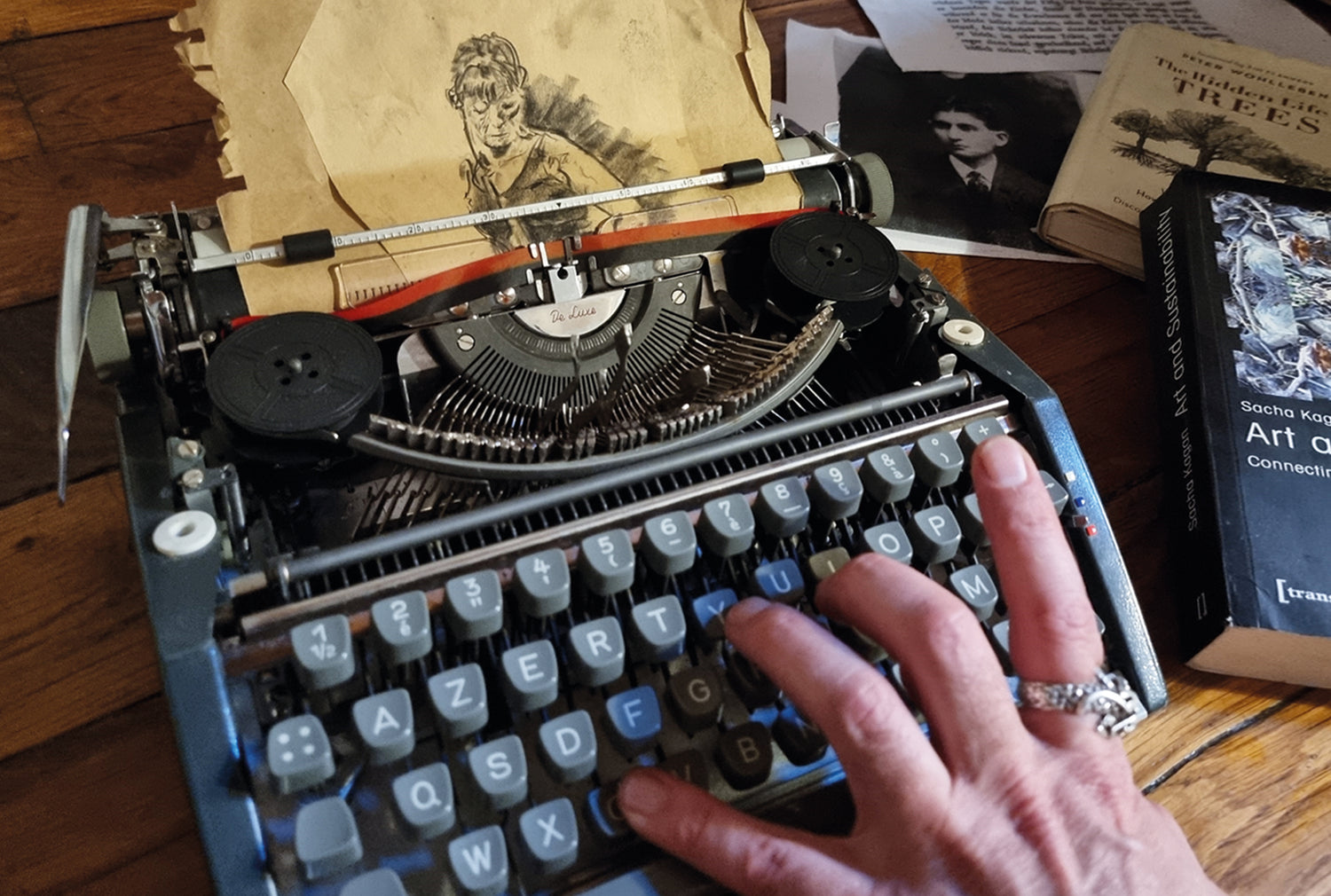
ART MEETS
LITERATURE
The series SKETCH & STORY (work in process): Together with his poetic accomplice Tarantula, Roman is writing stories and poetry to accompany his charcoal drawings. Tarantula is an Olympia typewriter from 1963, "born" in the same town on the German North Sea coast as Roman: Wilhelmshaven.
The project The FOLD littéra|time (work in process): Roman is exploring the relationship between the reader and a literary work through a multimedia approach: drawings, photos, videos and text. “Folding the page of a book and diving into this enclave is my metaphorical starting point for venturing into the intimate encounter with a text as a living organism”. In order to broaden and refine the gaze towards the metaphorical potential of the fold, Roman creates anchor points in other fields, such as: origami, biology (the fleecy fold of belly plumage, called the “brood pouch”, which the emperor penguins are using to protect eggs during incubation), architecture, the oriental dance of the whirling dervishes, philosophy (Gilles Deleuze) and the digital world (the fold as a “space of reflection” for interactive data visualisation). The first book on which Roman is applying this experimental approach is The Scorpion-Fish (1981) by the Swiss writer and traveller Nicolas Bouvier.
DOCUMENTATION of selected “ART meets LITERATURE” projects under the menu Artworks.
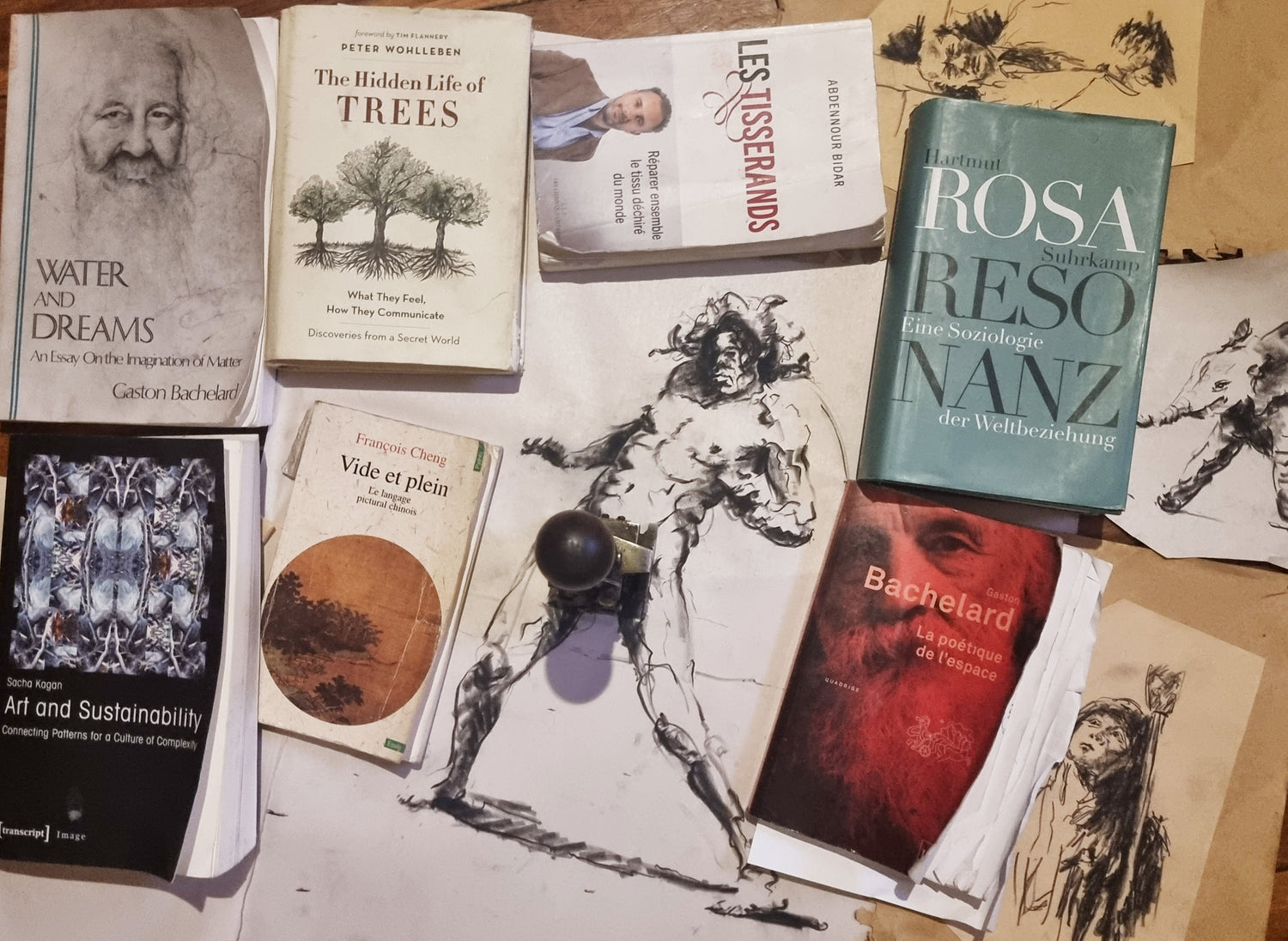
ART MEETS
PHILOSOPHY
All of Roman’s art projects are strongly nourished by philosophical and sociological sources, in particular: Hartmut Rosa (Resonance: A Sociology of Our Relationship to the World, 2019); Gaston Bachelard (The Poetics of Space, 1969; Water and Dreams, 1983; Air and Dreams, 1988); Marshall McLuhan (The Medium Is the Massage: An Inventory of Effects, 1967; War and Peace in the Global Village, 1968 ; Understanding Media: The Extensions of Man, 1964).
He gave a lecture about the impact of philosophy on his work at the UNESCO Headquarters (Paris/FR) as part of the 17th International Conference on New Philosophical Practices - organised by the UNESCO Chair Philosophical practices with children (4-18 years): an educational basis for intercultural dialogue and social transformation.
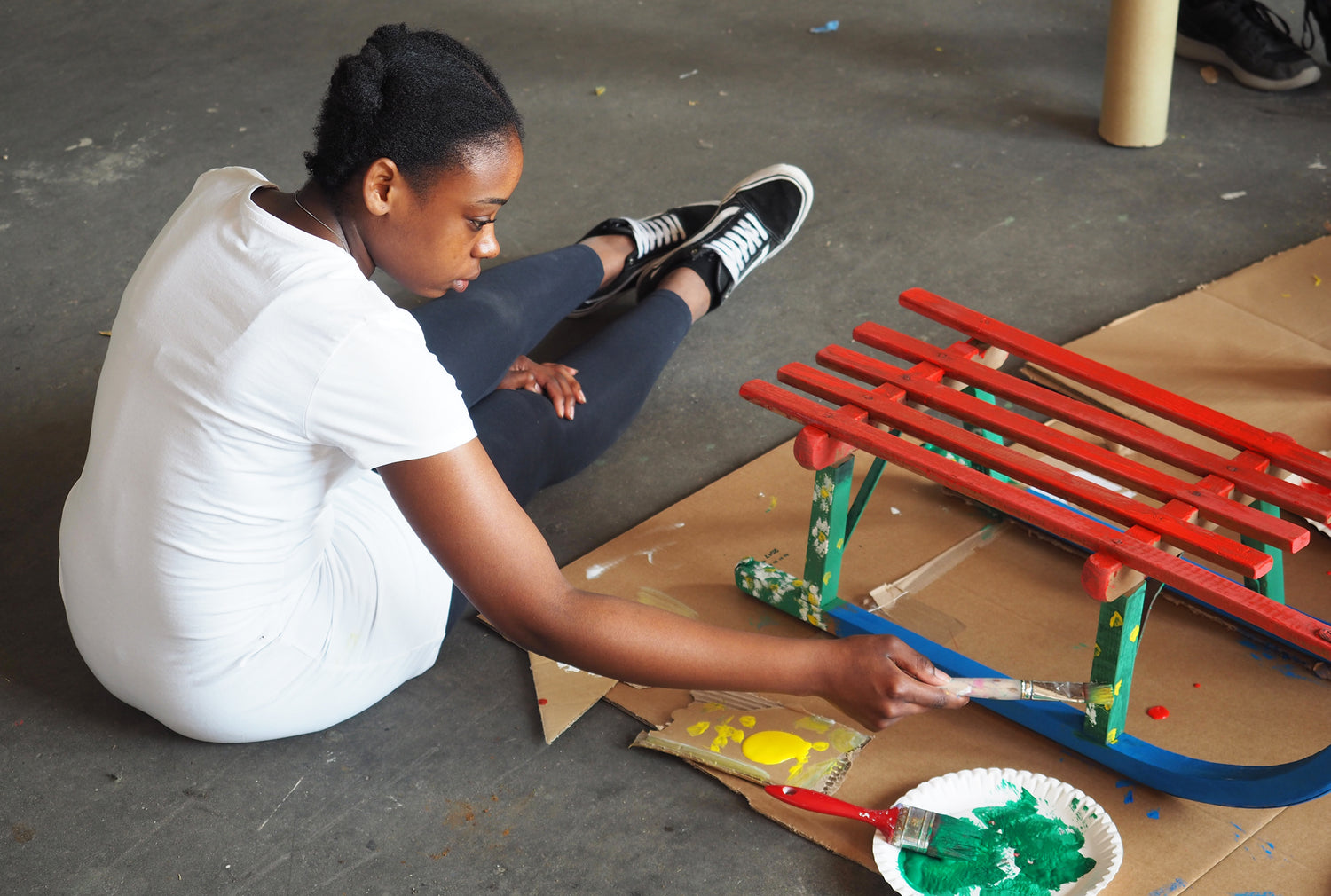
ART MEETS
PEDAGOGY
Roman perceives art as a social catalyst. The experiences made during his “personal” art projects therefore serve him as a trigger to multiply the interdisciplinary discourse in other parts of society: Throughout Europe he develops, directs and coordinates workshops in partnership with schools, universities, foundations, memorial sites and museums – amongst others in the context of scientific colloquiums, cultural exchange programs, Erasmus + programs, study tours or project weeks. He has also provided teacher trainings for the national ministries of education in France, Germany and Switzerland.
The participants of his workshops have ranged from primary school children to university professors, furthermore: university students of diverse disciplines (visual communication, fine arts, architecture, fashion design, communication in social and economic contexts, dance, music, literature, …), high-school students, teachers, refugees and prisoners.
The concepts of his interdisciplinary art workshop have repeated won awards, the latest: eku ZUKUNFTSPREIS 2021 (2.500 €) by the Saxon State Ministry for Energy, Climate Protection, Environment and Agriculture.
